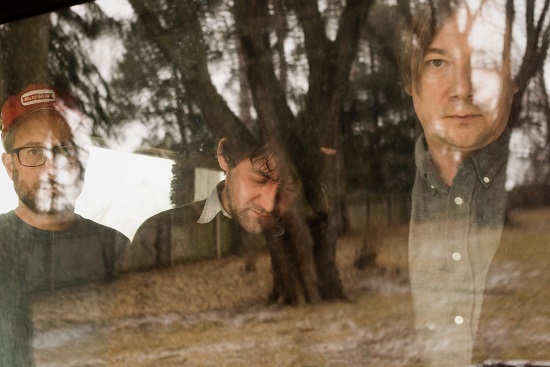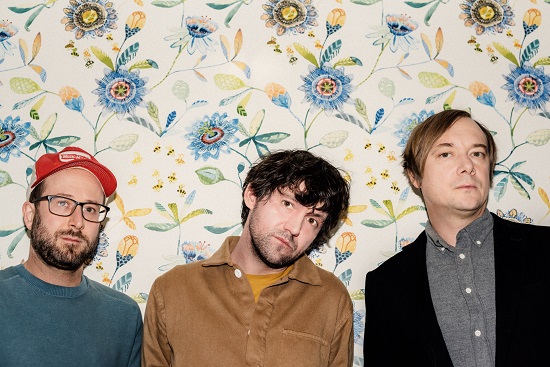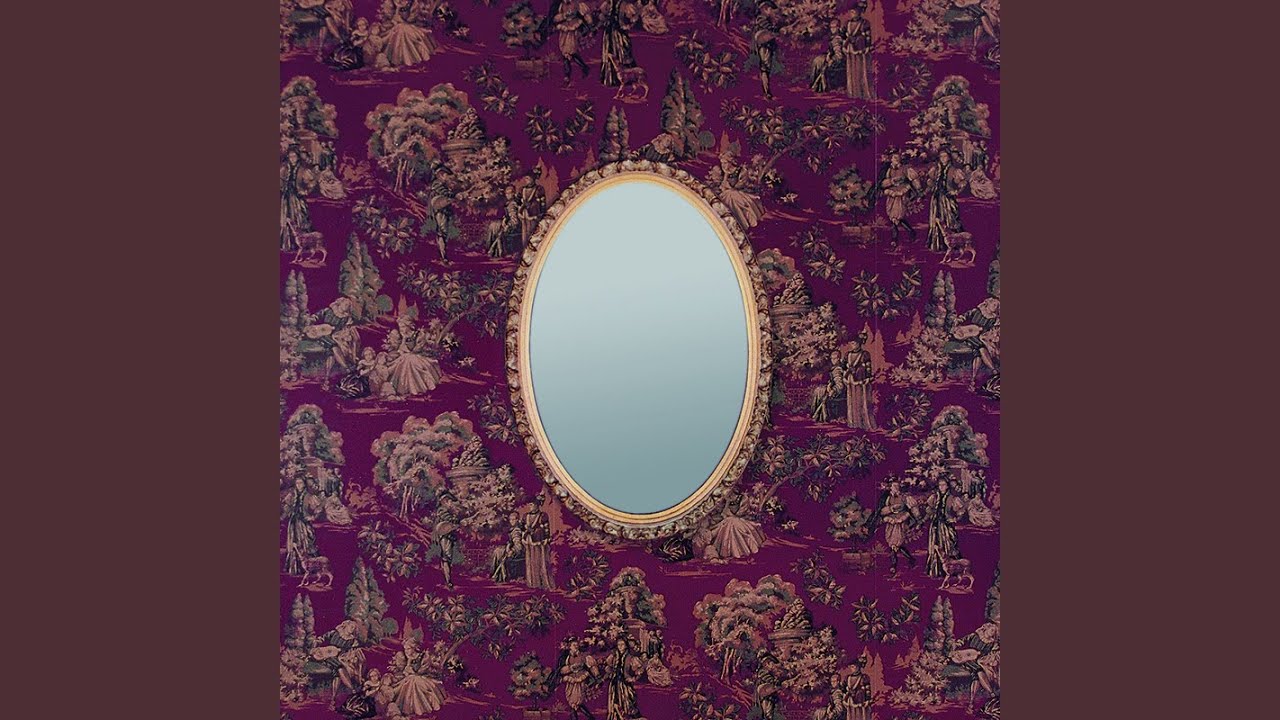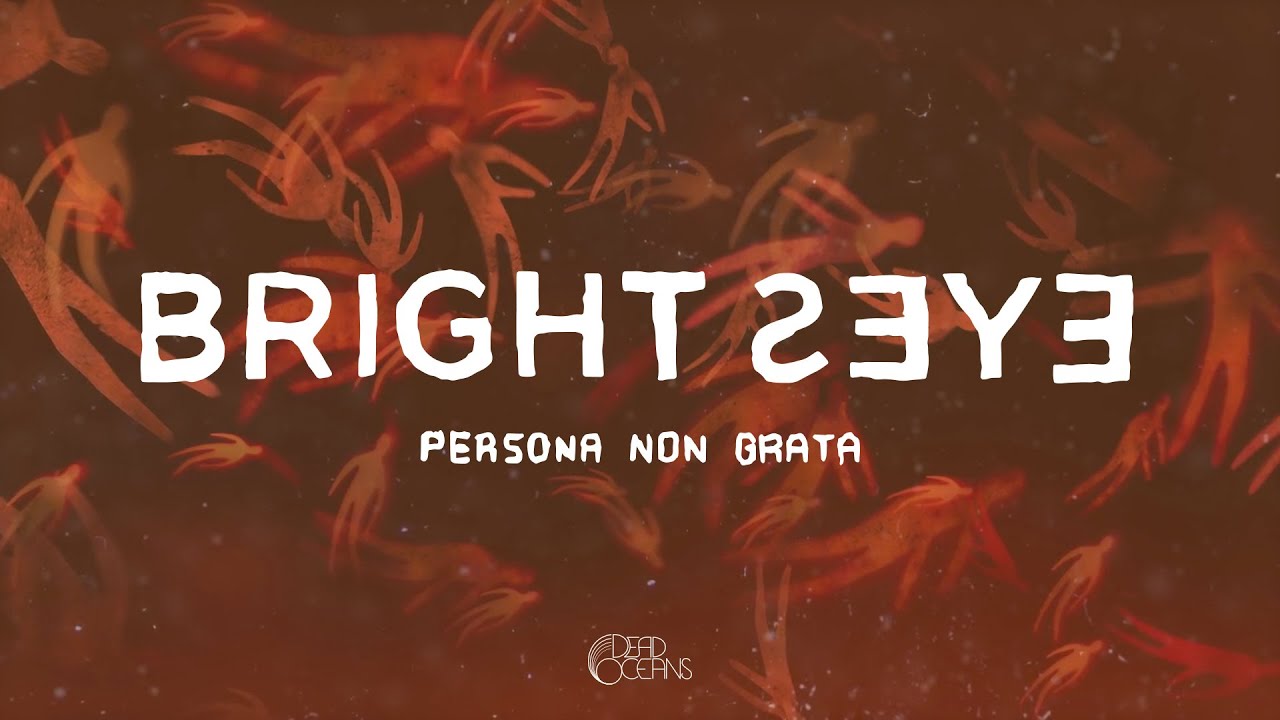Photo: Shawn Brackbill
On the surface, one might ascribe the particularly devoted fandom that surrounds Bright Eyes to their more sentimental inclinations, schmaltzy songs like ‘First Day Of My Life’ and its parent album I’m Wide Awake, It’s Morning, as well as the way they’ve been embraced by emo – a subculture for whom intimate emotional connection was always paramount. Yet it can be attributed to something deeper. The band have a potent experimental streak that underpins their more traditional songwriting, often manifesting itself in a delightful tinkering with the fourth wall. They fray the edges that separate the self-contained world of a song and the normally voyeuristic role of the listener, better enveloping their audience into the worlds they set out to carefully build with each LP.
Speaking to frontman and chief songwriter Conor Oberst, producer Mike Mogis and fellow multi-instrumentalist and composer Nate Walcott via Zoom, I ask whether they think their music is more adventurous than often given credit for. “I feel like we’ve always had the ethos of not making the records exist in a super sterile space, and we definitely don’t make the same record over and over again,” says Oberst from his home in Omaha, Nebraska.
“I think we’ve always felt compelled to create sound experiences that are things we’ve never heard before,” adds Mogis from his studio, located in a guest-house somewhere between his and Oberst’s neighbouring back yards, and where the air conditioning has recently broken down, leaving him at the mercy of the state’s searing summer heat. Apart from I’m Wide Awake… and their lo-fi debut Letting Off The Happiness, he says, “we make it an environment for the music to be in. I think we help embolden the narrative of the songwriting. You almost feel like you’re in the music. I find it’s a way to draw in the listener and have them experience the music the way we’re experiencing.” He cites the skits that often peppered early-90s hip hop records as an inspiration. “We brought that into early-2000s emo-indie-rock!” he jokes.
Take a song like ‘An Attempt To Tip The Scales’ from the group’s 2000 album Fevers And Mirrors, on which a fairly straightforward acoustic song starts to give way to an affecting influx of electronics and gentle distortion as it approaches what appears to be a soaring chorus. At that point, however, things take a considerable left turn as the music instead settles into a single looping tone as a radio interview, the station’s name bleeped out, begins with ‘Conor Oberst’ (actually an impersonation by musician Todd Fink of The Faint) who rambles about the nature of time to an interviewer played by Mogis’ former Lullaby For The Working Class bandmate Matt Silcock. The interview gets gradually more uncomfortable as the interviewer probes the fake Oberst on where the boundaries lie between fact and fiction in Bright Eyes’ lyrics, met with ever more fantastical and incoherent replies. As that repeated looping tone continues, by this point extremely grating, the fake Oberst then says, as if an actor turning to look straight down the barrel of a camera, “can you make that sound stop, please?” which it duly does. The awkward, stilted interview continues before fake-Oberst suddenly interrupts with a brief burst of strange energy: “Do you ever hear things that aren’t really there? Nevermind…” Soon afterwards, in the background, what sounds like another interview can be heard buried in the distance. As a listener, you feel a tension beyond that of the spiky interview, as if you’re eavesdropping from behind a one-way mirror, that you are the thing he’s been hearing.
There are dozens of other examples where Bright Eyes toy with what on other records might feel like an indestructible barrier between listener and record. Oberst (the real one) recalls ‘When the Curious Girl Realizes She Is Under Glass’ from the same record, which Mogis recorded from a vent above the studio for full effect. “The idea was that we wanted to sound like it’s your annoying neighbour playing this song on his piano and you’re forced to listen to it through a wall,” Oberst says. Another instance is ‘False Advertising’, from 2002’s LIFTED Or The Story Is In The Soil, Keep Your Ear To The Ground, and which begins as a clean and elegant orchestral swoon but gradually disintegrates with the crackle of a badly-maintained vinyl record, stumbles as one of the players hits a bum note and apologies, before a round of applause at the song’s end completely recontextualises its location. You can hear that applause muffle as a door slams and whoever’s ear through which we’ve been hearing the song through departs the room.
Walcott, speaking from his home in Los Angeles, cites sessions with a choir for the group’s new record. “Instead of going a very traditional route in how to deal with that, we decided to make it sound like it was coming from an AM radio or something, another element that just takes you to a different place than just ‘here’s a choir recorded on a nice microphone’.”
“I think it’s interesting when songs exist in a space that feels a bit… supernatural for lack of a better word,” says Oberst. “There’s very little of our music that’s just recorded in a natural way, usually we record a guitar part or something then it ends up getting run through a million of Mike’s magic little boxes.”
“Although I guess our most successful album is the one where we didn’t do that, so maybe people don’t like it,” Mogis laughs, referring to I’m Wide Awake, It’s Morning. “I almost felt embarrassed by that album because I didn’t do any work.”
“What’s funny about Wide Awake is that it’s definitely our most famous record, but that was also its own kind of experiment in that we were intentionally like ‘let’s make a 70s folk-rock album,” Oberst adds.

Photo: Shawn Brackbill
Perhaps the best example of Bright Eyes’ world-building is to be found on The People’s Key, where they employed the wild, quasi-mystic rants of psychedelic musician, (and supposed former biker gang member, welder, professional athlete and drug runner) Denny Brewer to augment the “science fiction driven” LP that would be their last before a lengthy hiatus. Oberst first met him when he was working on his Mystic Valley Band project in Tornillo, Texas. “So much of the stuff with him I don’t know what’s legend and what’s true, but I can attest to the fact he had acquired a lot of money and did not have a normal job. He had this crazy ranch, full of insane classic cars and guitars worth 100,000 dollars that weren’t in cases. He was friends with this guy Tony Rancich who owns the studio Sonic Ranch, and they were friends, so he’d come sell him guitars and microphones and just come and hang out. He’d go on these rants when he’d just talk, and talk, and talk. We didn’t have to twist his arm or anything, just turn on the microphone. I think he sent us like 3 hours of talking, then me and Andy LeMaster who works with us a lot sat for hours and tried to weave it into the songs.”
Perhaps it’s notable that the band announced their long-awaited comeback record Down In The Weeds, Where The World Once Was with its most unusual track, the bagpipe-led funeral dirge ‘Persona Non Grata’. But then again that was the decision of their new record label, Dead Oceans. “It was not our choice, Oberst says dryly. “It didn’t make sense to me either, but I respect this guy Phil Waldorf who runs Dead Oceans because he’s got cool, weird ideas, and when he said that’s the one he wanted to put out first I just went with it.”
“I mean have you seen our press photo? No one in the band wanted that!” interjects Mogis. “Like, ‘do you wanna go with the pink pastel-coloured suit or the yellow pastel-coloured suit?’ ‘Well what’s behind door number three?’”

Photo: Danny Cohen
Bright Eyes’ attention to the world and personality of each album extended to the break that preceded Down In The Weeds…. “I think for the first time we discussed ahead of time that we wanted it to reflect our old albums to some degree, because it had been so long since we made a record. I wanted it to feel kind of nostalgic and not stick out like a sore thumb, but at the same time acknowledge that it is ten years later and we’re obviously all old at this point. It was about trying to find a balance between those two things, like ‘let’s make it sound like one of our records but it’s obviously taking place in 2019.’ At least lyrically, how we’re singing about ourselves, it’s what I think they call ‘age-appropriate.’”
Mogis sees the new record, which is ambitious in scope, as a culmination of the vast and varied discography that proceeded it. “On all of our records we had a kind of intention. We were making a ‘70s folk record with Wide Awake, at the same time we made a digital programmed keyboard record with Digital Ash In A Digital Urn [which was released simultaneously]. Cassadaga was more orchestral, People’s Key was more sci-fi. I feel like because this one used all those elements for the first time it’s unique; there’s a bit of the folksiness, a bit of the orchestral, a bit of the electronic, a bit of the grungy lo-fi shit from the old days.”
“Like a casserole buffet,” Oberst summarises.
One of the reasons behind the progression that’s marked each Bright Eyes album out from its predecessor is the way the band’s personnel – other than Walcott, Oberst and Mogis – constantly shifts. For their new record they enlisted Red Hot Chilli Peppers bassist Flea and former The Mars Volta and current Queens Of The Stone Age drummer Jon Theodore as their rhythm section. “There’s slap bass on a Bright Eyes song, I never thought I’d say that,” says Oberst, “and Jon’s day job is hard rock bands, which we are obviously not. I think they both brought a different set of sensibilities that wouldn’t have occurred if we hadn’t rolled the dice like that.”
Flea and Theodore’s presence also informed Walcott’s approach to a 40-piece orchestra the band enlisted for one track. “With some of the past orchestral stuff we’d done, like Cassadaga, it was so dense and complicated, and this time I remember just really wanting to keep it melodic and leave space for those guys because at the low end we they were playing such amazing stuff. It meant that we could deal with the essential parts a lot, a sense of melody that comes through that I think ties it to that sense of nostalgia. One of the things I love about the earlier Bright Eyes records that I didn’t have anything to do with [having joined the band full-time in 2005 after three years’ playing with them] is that there’s always a melody that’s clear and concise.”
“We distilled things down more on this record than we had in the past,” adds Mogis. He calls the wonky and dreamy mid-album track ‘Pan And Broom’ “the most extreme” example. “We got rid of almost everything we recorded, we distilled everything down to let what’s there be more prominent.”
Bright Eyes’ innovative inclinations are by now tightly woven into the fabric of their creative process, yet it would still be a stretch to call them an ‘experimental’ band. It would be a shame, in fact, to overlook that expressive and raw aspect of their music that, although bolstered and elevated by their creative approach to recording, is still the chief source of their tremendous emotional pull. Oberst has described Down In The Weeds… as a record informed greatly by loss, most obviously that of his brother Matthew who died in 2016 having “drank himself to death,” as Oberst once put it. “It took a while to sink in to really be able to express any of that stuff,” he says. His seven year-long marriage to Corina Figueroa Escamilla also ended in divorce in 2017. They’re still close, it’s in fact his ex-wife who can be heard speaking in Spanish on the album’s opener ‘Pageturner’s Rag’, “but of course it’s still a traumatic feeling to lose something that’s a foundation of your life.”

Photo: Shawn Brackbill
Even in this darker territory, however, Bright Eyes’ inventive side is apparent as they juxtapose personal loss with existential. “I mean on the macro level, it’s just like, fuck, I don’t gotta tell any of you guys…”
“Wait, I haven’t turned on the television yet, what happened this time?” Mogis interrupts. He’s yet to see Donald Trump’s comments shortly before our interview that 99% of coronavirus cases are ‘harmless’.
“Obviously we recorded this shit before the pandemic, but it already felt like living in Trump’s America was psychotic. It’s a mind-bending, unexplainable, terrifying backdrop to live under. Everyone with a brain in their head in this country has felt like a scared dog cowering in the corner getting kicked over and over again. The shit this guy gets away with and puts everyone through, the amount of hate and ignorance he perpetuates day in day out is nauseating… Anyway, I guess the feeling of loss, whether it’s physical loss or the loss of love or the loss of reality and clarity and any sense of normalcy, isn’t what I was thinking of explicitly while I was writing the songs but, but I that’s the backdrop to your life then it makes sense they would enter into the songs.”
It would be untrue call Down In The Weeds… an ‘experimental’ record; like everything else in their discography it is based primarily around solid and soul-baring songwriting, rather than left-field forays into the realm of unlistenability. Given close inspection, however it is the best example yet of the inventive spirit that Bright Eyes have always used to elevate that songwriting, a record that consciously surmises all that comes before it, while also priming the next chapter. “I can give you some hot news,” Oberst says as we wrap up our interview. “The contract we signed was for two records so we’re gonna make another, presuming we all stay alive…”
Bright Eyes’ new album Down In The Weeds, Where The World Once Was is released on August 21 via Dead Oceans




